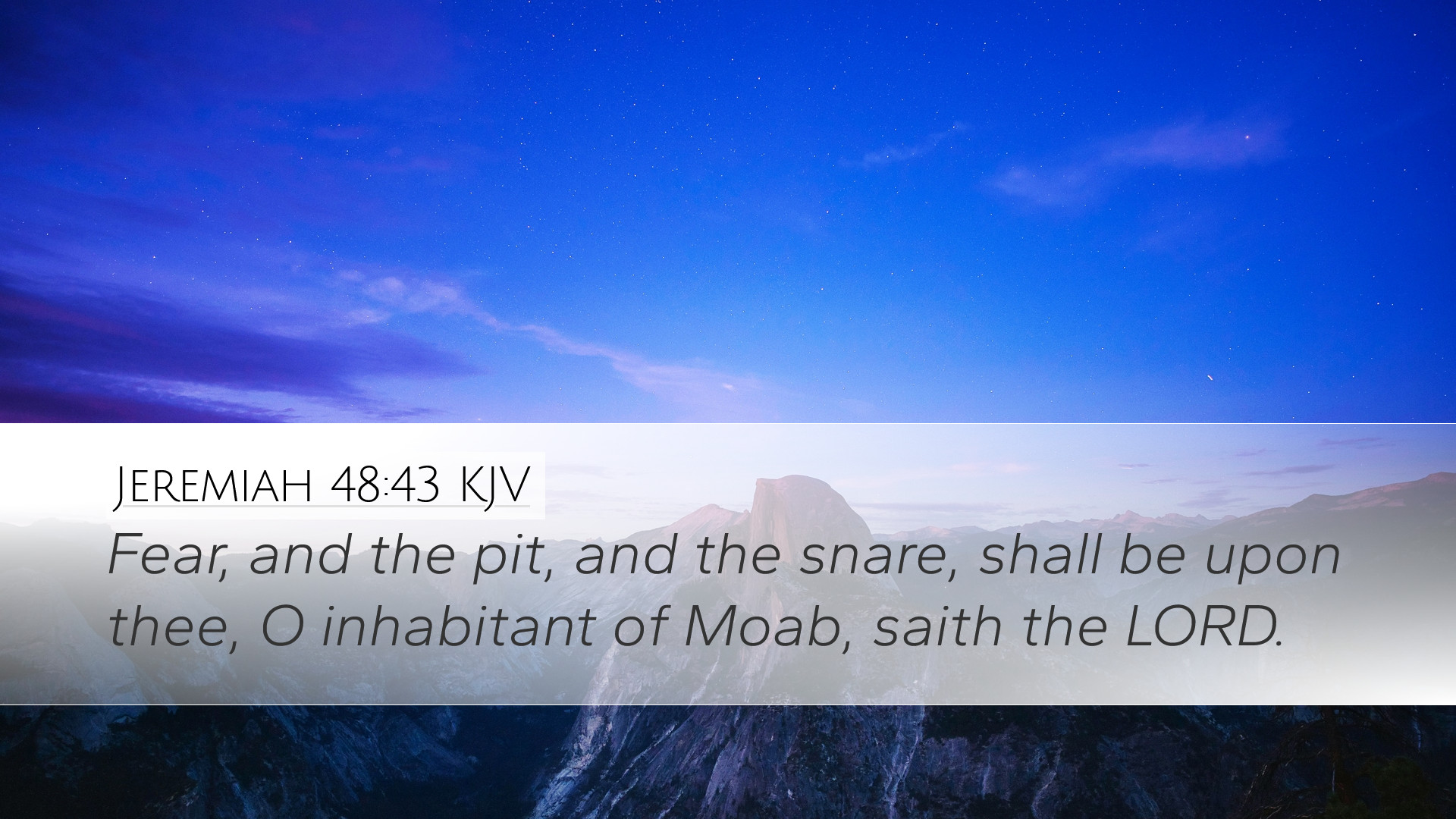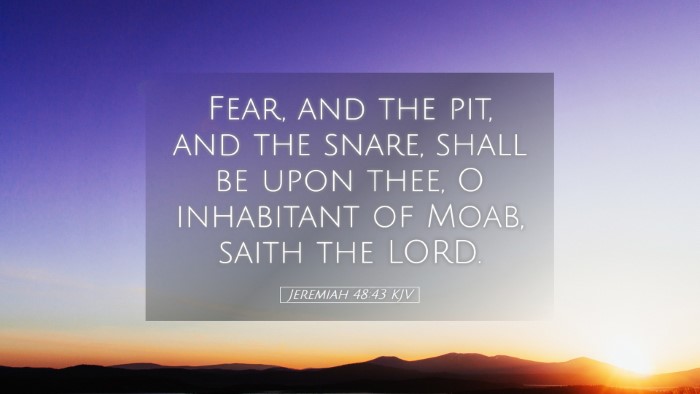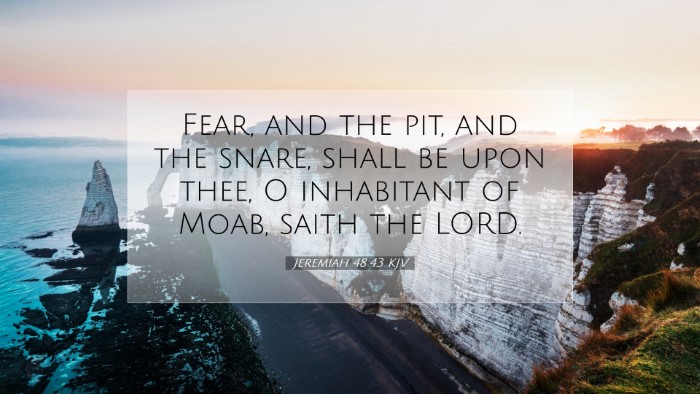Commentary on Jeremiah 48:43
Verse: "Fear, and the pit, and the snare, shall be upon thee, O inhabitant of Moab, saith the Lord." (Jeremiah 48:43)
Contextual Background
The Book of Jeremiah serves as a prophetic literature that largely addresses the nation of Judah and its surrounding nations, including Moab. Jeremiah, a prophet during the late 7th and early 6th centuries B.C., conveyed God's messages of judgment, warning, and hope. In this chapter, God's impending judgment on Moab is vividly depicted as part of His plan to address the idolatrous behavior and moral corruption prevalent in the region.
Exegesis of the Verse
This verse encapsulates a divine declaration of doom upon Moab. The terms fear, the pit, and the snare metaphorically represent various forms of judgment. Each term can be seen as a layer of calamity that reflects the seriousness of their sin and rebellion against God.
- Fear: Represents the terror that will engulf the people, highlighting the psychological impact of impending judgment.
- The Pit: A symbol of destruction and death; it suggests a grave danger from which escape is impossible.
- The Snare: Implies entrapment, indicating that the inhabitants of Moab will find themselves caught in circumstances that they cannot evade.
Theological Insights
The theological underpinning of this verse reveals the character of God as just and holy. Judgment is not arbitrary but is a response to persistent wrongdoing. According to Matthew Henry, this pronouncement signifies the consequences that inevitably follow persistent disobedience to God. The inhabitants of Moab represent not only a specific historical people but stand as a warning to all nations regarding the results of forsaking the covenant of God.
Albert Barnes adds that these pronouncements are a demonstration of God's sovereignty over nations, implying that He has authority and control over all people, not just Israel. The mention of Moab's terror emphasizes the universality of God's judgment, which does not exclude even those outside of His chosen people.
Practical Applications
This verse serves as a timeless reminder for both individuals and collective communities to examine their spiritual walk with God. Here are practical applications drawn from the insights of these respected commentators:
- Self-Examination: Individuals should regularly evaluate their lives in light of God's word to ensure they are not falling into fear, pit, and snare through sin.
- Awareness of God’s Judgment: Understanding the seriousness of corrupt practices can lead to repentance and a return to righteousness, evading the dire consequences illustrated in this passage.
- Intercession: Believers are called to intercede for their communities, acknowledging that the decline in morality may invoke God's judgment.
Conclusion
In summary, Jeremiah 48:43 serves as a sobering reminder of the reality of God's judgment. The fears and snares that this verse describes are not just historical events for Moab, but serve as a paradigm of consequence for all who turn away from God. Adam Clarke emphasizes that such passages should inspire a renewed commitment to holiness and righteousness among believers, aiming to live a life that honors God and abides in His favor.
As we reflect on this verse, may we be encouraged to seek God earnestly, live in obedience, and warn others of the consequences of sin, within and beyond our communities.


